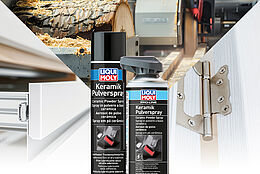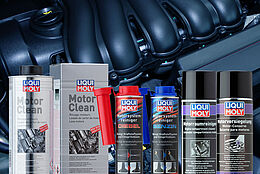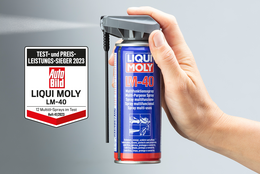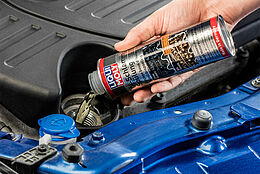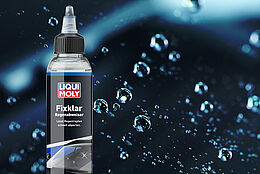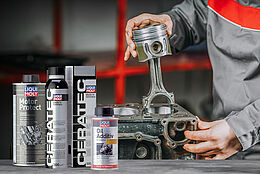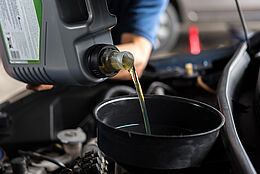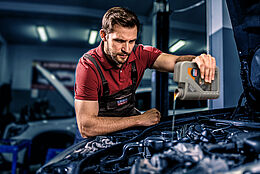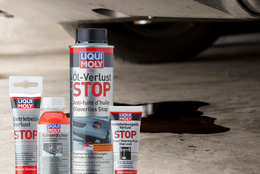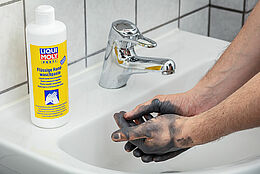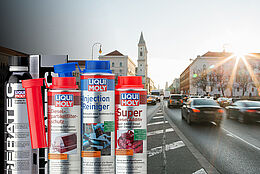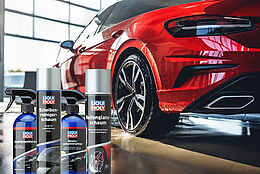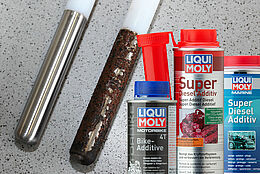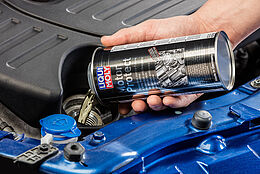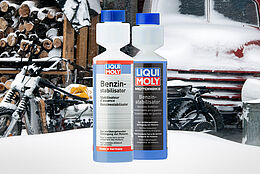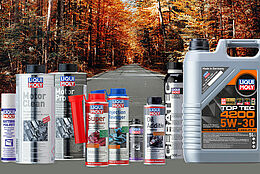- 5min
Do vintage and modern classics need special lubricants?

What happens when a classic car is given a sip from a modern oil canister?
David Kaiser: That should lead to a hefty indigestion. Modern synthetic oils are generally unsuitable for older vehicles, as they do not match the engine technology used at the time.
But doesn’t a modern oil lubricate the engine better?
David Kaiser: It is true that modern motor oil offers extremely high performance. But the performance of these lubricants does not meet the requirement profile for classic vehicles. Here a completely different set of additives is necessary, because modern ash-free oils have wear protection that is matched to other engine materials. The detergents contained in these additive packages prevent sludge formation and this is a disaster with old filterless engines.
To what extent does engine manufacture play a role?
David Kaiser: The engines of vintage cars and even older modern classics are made of different materials and have different manufacturing tolerances and oil change intervals than modern cars. That’s why LIQUI MOLY offers motor oils for classic vehicles that are based on specially developed formulations.
What is the difference between the new formulas for classics and the earlier ones?
David Kaiser: Old power plants, especially those with high mileage and other materials such as white metals, non-ferrous alloys and sealing elements, require different oils. A major difference between today’s classic lubricants and those of the past is their performance spectrum. They meet the special requirements of classic engines and at the same time have state-of-the-art wear protection properties. Therefore, the modern classic car oils are clearly superior to the earlier ones.
Does a classic oil have to perform the same as a lubricant for modern cars?
David Kaiser: Back then, just like today, lubricants formed important elements of engine design. Lubrication is just one of many tasks. The oil has to thermally relieve and seal the engine, protect it against wear and corrosion, and safeguard engine performance. The earlier assemblies cannot be compared to the designs and loads of today’s. The temperatures and pressures in modern automobile engines are much higher than in old units. In addition, the issues of exhaust emission reduction and fuel savings played no or only a minor role in the past. This is precisely why tailor-made oils are so important, so as not to risk engine damage. That was true in the past and it is still true today. Which oil is the right one can be found in the manual of the vehicle. If you don’t have it anymore or are unsure, the oil guide will help you.
What about gear oils?
David Kaiser: Just as modern motor oils are out of place in classic cars, modern transmission oils only belong in modern vehicles. They are usually too thin for old transmissions and material compatibility is jeopardized, which can cause damage. For in many classic car gearboxes, particularly if built before 1950, non-ferrous metals, such as bronze as well as white metals or alloys, were still used. These metals are attacked by the additives contained in modern transmission oils. Old lubricating oil formulations, on the other hand, do not contain sufficient additives. For this reason, we offer special solutions with our Classic Transmission Oils in the viscosities SAE 90 and SAE 140 that meet the exact requirements of classic cars. As classic cars are almost exclusively used in summer, both gearbox oils are a little thicker and the base oils are adapted to the age of the vehicles. While the Classic Transmission Oil SAE 140 is suitable for manual gearboxes of classic vehicles and axle drives with low loads, the SAE 90 can only be used in manual tranmissions. With our specially adapted additive packages, they combine modern know-how with the specific needs of classic cars. By the way: you can also find the right gear oil for the respective vehicle using our oil guide.
The LIQUI MOLY Classic range
The Classic collection, specially designed for engines of historic vehicles, comprises three mineral-based motor oils in the viscosities SAE 30, SAE 50 and SAE 20W-50 HD as well as the Motorbike HD-Classic SAE 50 Street. The Classic motor oil line is supplemented by the transmission lubricants SAE 90 and SAE 140.
In order to maintain the value, aesthetics, reliability, driving safety and tradition of the vintage or modern classic car in the long term, it is essential to use the right oil and to administer it regularly. Whether additive or care products, you will find all relevant products in our wide range.







